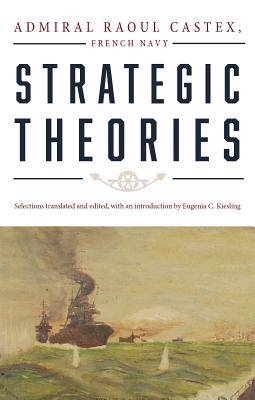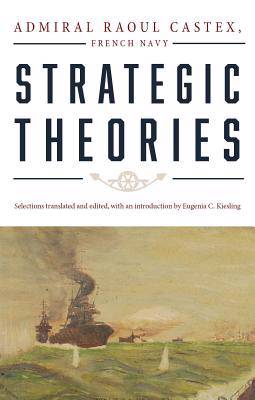
- Afhalen na 1 uur in een winkel met voorraad
- Gratis thuislevering in België vanaf € 30
- Ruim aanbod met 7 miljoen producten
- Afhalen na 1 uur in een winkel met voorraad
- Gratis thuislevering in België vanaf € 30
- Ruim aanbod met 7 miljoen producten
Zoeken
Omschrijving
Admiral Raoul Castex is France's most important modern naval strategist. Military historian Eugenia Kiesling offers the essence of Castex's original five volume study, Théories Stratégiques, in a useful one-volume abridgment and a very readable translation. It emphasizes the admiral's method of strategic analysis while omitting most of the historical narrative. Included are chapters defining strategy and relating it to policy and geography, analyzing the role of maritime forces and the significance of command at sea, prescribing a theory of conduct of operations, and introducing Castex's favorite themes: strategic manoeuvre, stratégie générale, and the theory of "perturbation." Two narrative chapters on German operations in the North Sea from 1914 to 1916 remain as examples of the author's historical style. The introduction places Castex's work in four distinct contexts: the international debate among naval theorists on the nature and importance of "command at sea," the controversy within France between advocates of the "historical" and "material" schools of naval strategy, the contemporary concern over coordinated naval strategy for total war, and his contribution to the formulation of French strategy between the world wars. In an era of expanding global responsibilities and shrinking national economies, Castex's balanced view of naval power offers many insights for today's new generation of naval thinkers.
Specificaties
Betrokkenen
- Auteur(s):
- Uitgeverij:
Inhoud
- Aantal bladzijden:
- 496
- Taal:
- Engels
- Reeks:
Eigenschappen
- Productcode (EAN):
- 9781591145943
- Verschijningsdatum:
- 1/09/2017
- Uitvoering:
- Paperback
- Formaat:
- Trade paperback (VS)
- Afmetingen:
- 132 mm x 208 mm
- Gewicht:
- 612 g

Alleen bij Standaard Boekhandel
+ 110 punten op je klantenkaart van Standaard Boekhandel
Beoordelingen
We publiceren alleen reviews die voldoen aan de voorwaarden voor reviews. Bekijk onze voorwaarden voor reviews.











